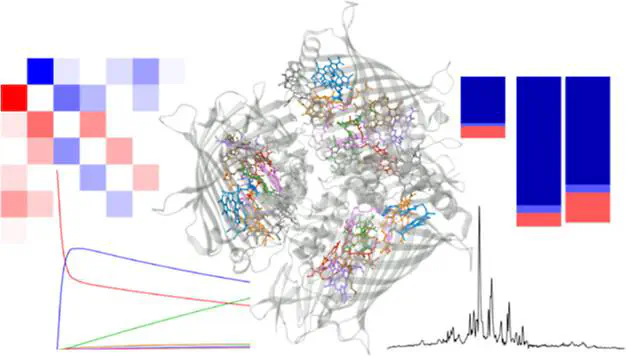Impact of Spatial Inhomogeneity on Excitation Energy Transport in the Fenna–Matthews–Olson Complex

Abstract
The dynamics of the excitation energy transfer (EET) in photosynthetic complexes is an interesting question both from the perspective of fundamental understanding and the research in artificial photosynthesis. Over the past decade, very accurate spectral densities have been developed to capture spatial inhomogeneities in the Fenna–Matthews–Olson (FMO) complex. However, challenges persist in numerically simulating these systems, both in terms of parameterizing them and following their dynamics over long periods of time because of long non-Markovian memories. We investigate the dynamics of FMO with the exact treatment of various theoretical spectral densities using the new tensor network path integral-based methods, which are uniquely capable of addressing the difficulty of long memory length and incoherent Förster theory. It is also important to be able to analyze the pathway of EET flow, which can be difficult to identify given the non-trivial structure of connections between bacteriochlorophyll molecules in FMO. We use the recently introduced ideas of relating coherence to population derivatives to analyze the transport process and reveal some new routes of transport. The combination of exact and approximate methods sheds light on the role of coherences in affecting the fine details of the transport and promises to be a powerful toolbox for future exploration of other open systems with quantum transport.